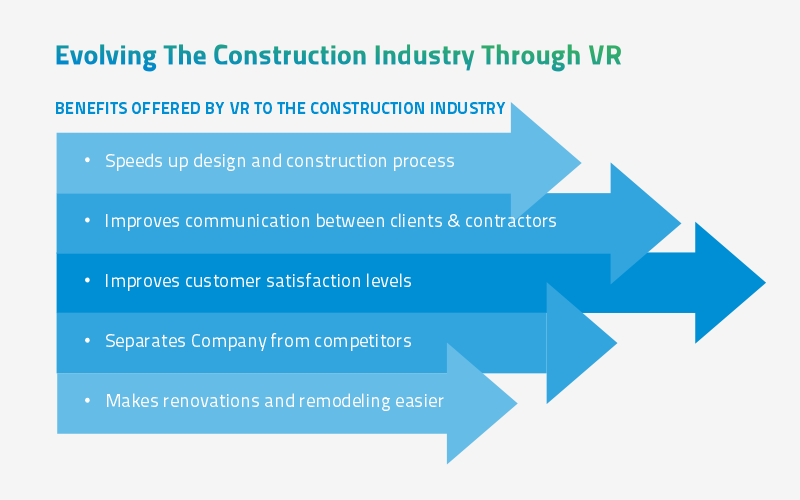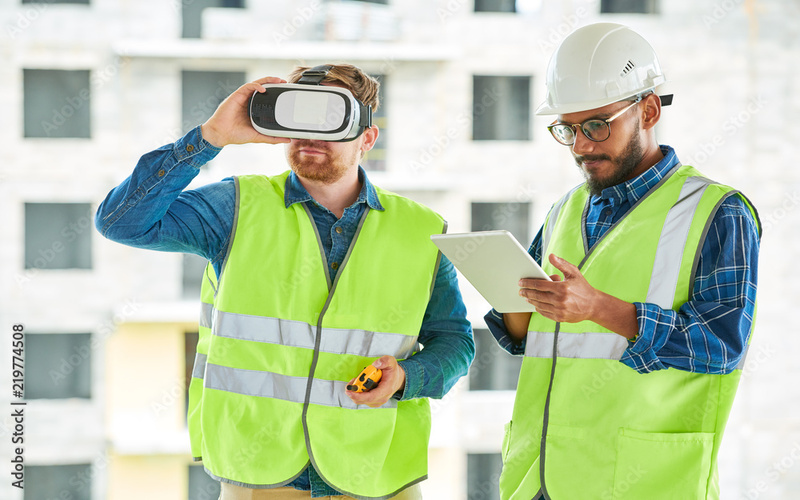Last Updated on November 23, 2023 by softtech
Innovative construction companies have begun using virtual reality (VR) to revitalise an ageing industry as a result of recent significant advancements in VR technology. Here are some examples of how virtual reality is transforming the building industry. Virtual reality, as opposed to 3D modelling, aids in bringing projects to life.
 Customers can use the virtual immersion headset to traverse an expanded 2D model and experience it in three dimensions. The switch to VR helps them save time by allowing their clients—mostly healthcare and medical facilities—to examine and feel the layout in three dimensions. In addition to projects being approved more rapidly once the team started showing customers projects in virtual reality, clients also expressed greater overall pleasure and interacted more amicably with the team while the project was being built.
Customers can use the virtual immersion headset to traverse an expanded 2D model and experience it in three dimensions. The switch to VR helps them save time by allowing their clients—mostly healthcare and medical facilities—to examine and feel the layout in three dimensions. In addition to projects being approved more rapidly once the team started showing customers projects in virtual reality, clients also expressed greater overall pleasure and interacted more amicably with the team while the project was being built.
Both new construction and renovations to existing homes can profit from virtual reality technology. A builder can use virtual reality goggles and 3D modelling on a smaller scale to demonstrate to clients how a home extension or bathroom remodel can raise the value of their home. During the planning and pre-construction phases of the project, small-scale virtual reality modelling techniques can help the client and contractor come to an agreement so that the project can go forward in the right path.
When clients often alter their ideas, virtual reality modelling can be useful. Instead of engaging in another argument over scope creep, contractors might allow their clients to experience the project in virtual reality and then make changes based on immersive feedback. Clients are considerably more likely to comprehend a message when they can experience it for themselves rather than merely view a representation of it. Even with the most meticulous designs, the customer must employ creativity to envision the new construction project.
Due to the fact that the build invariably deviates from the client’s original vision, this usually results in the client changing their mind after the project has begun. Because scope creep affects the entire industry, construction workers will embrace VR technology for its capacity to stop it before it starts.
Virtual reality has the ability to expedite the design and construction process, enhance client-contractor communication, increase customer happiness, and favourably differentiate your business from rivals. As more companies realise the advantages of integrating VR with their building company, expect to see these use cases expand in creative and new ways.
About Author
Olivia Jones
Technology Specialist
Olivia is a highly skilled and experienced Technology Specialist with 10+ years of hands-on expertise in the rapidly evolving field of technology. She has a proven track record of successfully implementing and managing a wide range of technological solutions, ensuring optimal performance and efficiency. Olivia possesses a deep understanding of industry trends and emerging technologies, enabling her to provide strategic guidance and drive innovation within organizations. With a strong focus on problem-solving, she consistently delivers tailored solutions that align with business objectives while maximizing productivity and cost-effectiveness.
About SoftTech Engineers
A leading IT company (www.softtech-engr.com) facilitating business and technology transformation across the AEC industry through innovative software products and solutions. Equipped with 25+ years of deep domain expertise and industry knowledge, SoftTech has helped more than 4500 clients & government organizations, with more than 25000 users in India and around the world to gain a competitive edge and lead from the front in the industry.

